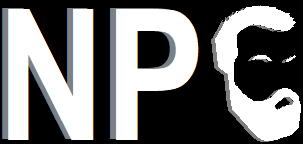By: Rob Comeau, CEO of Business Resource Center, Inc.
Business Owners often make the best Sales Professionals because they don’t “sell”
Reviewing why this generally proves true and how to translate this to your sales force
OVERVIEW
After meeting with thousands of business owners across a variety of industries we have come to the conclusion that more often than not, it is the Business Owner who is the best sales professional within their organization. Whether this is by design or a byproduct of starting and running a business, there are verifiable aspects that have led to this conclusion. When these attributes are identified and then applied to the business’ sales force, the organization will benefit and revenue growth will follow. When it comes to owners, the math is simple; E over E, translated Execution over Excuses.
We’ve noted, regardless of industry, from sales based organizations to engineering firms, the owner has consistently stood out as the best illustrator and educator for their business. Below is a exploration and review of the areas that attribute to the above statements.
KNOWLEDGE
Business Owners consistently have an in depth knowledge of their organization’s value proposition and are acutely aware of what their business can and cannot do. They understand of all aspects of their operation and therefore are able to more concisely illustrate the company’s abilities and advantages to prospective clientele. Most sales professionals learn enough to sell it, owners learn enough to run it. They also understand the difference between good and bad business and the effect on internal resources and the financial bottom-line. An owner doesn’t simply look at “can we do it” but also “should we do it”.
APPROACH
Owners aren’t overly concerned with ensuring the answer is “yes” when dealing with a prospective client’s questions or demands. They know the repercussions to the organization of promising something that isn’t within the core competencies. Owners know all decisions have pros and cons and knowledge of those variables will afford the ability for appropriate and informed decisions. Owners don’t seek “the close”, but more importantly appropriate business relationship. If the company can execute to the client needs, they will illustrate how. If it cannot, they will truthfully convey that message. For buyers who are consistently “sold”, this is a welcomed and refreshing approach.
APPLICATION
Owners generally have a superior business acumen and therefore understand how all aspects of their organization fit together. As a result, they are not myopically focused on selling a product or service, they identify how it would tie into their client’s company as a whole. By understanding their own thought process when buying, owners are able to ask the right questions, and seek to gain a clear understanding of a prospective client’s business model. If the product or service that the owner’s company offers is in line with improving the client’s business, the owner will be able to clearly convey why.
ACCOUNTABILITY
As an owner, the buck stops with you. Not only is an owner accountable for themselves and their company, but also for their workforce. Poor decisions in the sales process negatively affect the team that will support a bad business relationship. As a result, poor decisions lead to diminished profitability. Owners understand that excuses are useless, and effective execution is the driving factor to success in a capitalistic market. If a business relationship is worth making, an Owner will create a way to make it happen, if not, they will walk away.
TRANSITION
Commodity driven or consultative based? The approach that proves true within an organization will positively or negatively affect margins, client base and retention, ability to scale and market penetration. The payroll burden invested in a sales force shouldn’t be viewed as an overhead expense, but instead, investment capital. These positions inherently have an ROI tied to them and overtime prove to be a successful or poor investment. While it takes considerably more effort by your sales professionals to subscribe to a consultative approach, it pays long-term dividends.
REVIEW
In review, the attributes and vantage point of an owner which is applicable to sales:
- Possess a thorough knowledge of the company’s capabilities
- Approach prospective clientele with honesty and transparency
- Utilize an inquisitive approach to understand if/where the company offering fits within the client organization
- Review if the business partnership is in the best interest of all parties
- Have self-accountability for productivity and setting colleagues up for success
- Understands execution over excuses
When this approach is adhered to, your sales professional, your company and your clients will benefit. The approach and attributes inherently in most owners will create the model for a successful sales force and by extension, a better bottom-line.
NEXT STEPS
Sales training, development, evaluation and metrics should be instituted to ensure that the correct approach is taken with marketing penetration. Creating a developmental cycle to ensure thorough product knowledge, appropriate positioning and correct technique will assist in driving the aptitude of a sales force forward and allow for spot checking progress from executive management.
In the end, excellence requires sales professionals to put in the work and due diligence to increase their knowledge and approach. Bottom line: if you can’t explain it simply, then you don’t know it well enough.
To learn more about how you can apply the best practices of Business Owners within your sales force, visit us at www.biz-rc.com.

